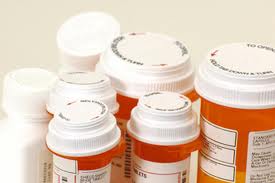For some people, prescription medication may be the most effective way to manage depression. However, as with starting any medication regimen, it is important to first take precautions and make decision if it is the right course of treatment. The following article will help you to become more aware of how you can incorporate prescription medication into your treatment if you choose to do so.
Prescription Medication for the Treatment
 Major Depressive Disorder is a mental illness categorized by a sustained and severe low mood. Experts believe that clinical depression (as opposed to situation depression, which is when you become sad in response to a sad stimuli) occurs because of a chemical imbalance in the brain. Neurotransmitters, or chemical messengers, are released into the synapse of the brain. In a normally functioning brain, the neurotransmitters that are released float across the synapse and attach themselves to axons on the other side, which then sends the message to your body to act a certain way. In the brain of a person with depression, not all of the neurotransmitters find a receptor. There then is a shortage of neurotransmitters to deliver their message, which results in the classic symptoms of depression, such as a low mood and lack of motivation. Prescription medication, therefore, work to inhibit the neurotransmitter receptors to balance out the levels within the brain.
Major Depressive Disorder is a mental illness categorized by a sustained and severe low mood. Experts believe that clinical depression (as opposed to situation depression, which is when you become sad in response to a sad stimuli) occurs because of a chemical imbalance in the brain. Neurotransmitters, or chemical messengers, are released into the synapse of the brain. In a normally functioning brain, the neurotransmitters that are released float across the synapse and attach themselves to axons on the other side, which then sends the message to your body to act a certain way. In the brain of a person with depression, not all of the neurotransmitters find a receptor. There then is a shortage of neurotransmitters to deliver their message, which results in the classic symptoms of depression, such as a low mood and lack of motivation. Prescription medication, therefore, work to inhibit the neurotransmitter receptors to balance out the levels within the brain.
If you believe that your depression can be managed effectively with medication, you will want to consult a psychiatrist to help determine the best type of treatment. There are several different classes of antidepressant medications, and your psychiatrist will help you decide which will work best for your particular symptoms. You’ll want to be as honest as you can with your psychiatrist so that she can help you in the best way possible.
How Medicare Prescription Drug Coverage
The cost of antidepressant medications varies greatly depending on the medication and pharmacy which you get it. For the most part, generic medications are more cost effective than their name brand counterparts, so if price is an important option, talk to your doctor about bupropion, fluoxetine, paroxitine, escitalopram, or citalopram. Some pharmacies have special prices for generic medications, so especially if you do not have prescription medication coverage, make sure that you call different pharmacies to price check the medication you are prescribed. Monthly costs for antidepressants can cost anywhere from $4 (at one well known retail pharmacy) to upwards of $500.
Most prescription insurances should cover a majority of antidepressant medications. Some insurances will only cover generic medications, while others may be open to brand name medications. If you are unsure of your coverage options, contact your insurance (there is typically a phone number available for customer support listed on the back of your insurance card) and ask what antidepressant medications they cover.
For any prescription or over-the-counter medications, there are potential side effects, some more serious than others. Antidepressants are no exception to this rule. Side effects vary from things as mild as dry mouth to those that interfere more with your daily life, such as an increased appetite (leading to weight gain) and sexual dysfunction. Other potentially serious side effects include increased heart rate and liver dysfunction. You can find more information about the rates of these side effects by consulting with your mental health professional.
If you have tried to manage your depression on your own but have not been able to successfully reduce your symptoms, prescription medication may be the answer you’re looking for. Using the advice from this article, talk to your doctor to see if they will be effective for your treatment.